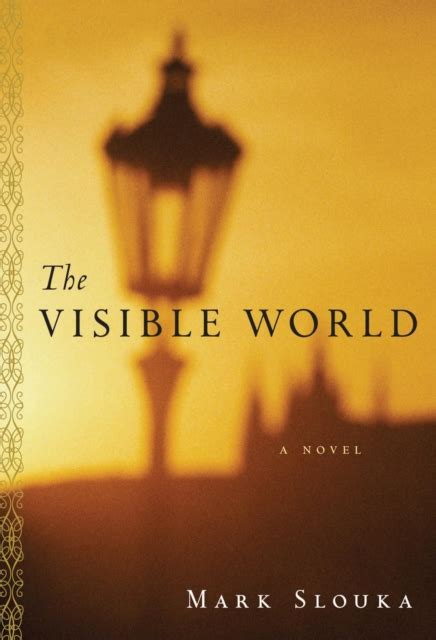A Quote by Mark Slouka
Consider it: Who but God could have dreamed a tale so absurd and so heartless?
Related Quotes
I dreamed I spoke in another's language, I dreamed I lived in another's skin, I dreamed I was my own beloved, I dreamed I was a tiger's kin. I dreamed that Eden lived inside me, And when I breathed a garden came, I dreamed I knew all of Creation, I dreamed I knew the Creator's name. I dreamed--and this dream was the finest-- That all I dreamed was real and true, And we would live in joy forever, You in me, and me in you.
. . . an absurd problem came to the surface: 'How COULD God permit that (crucifixion of Jesus Christ)!' . . . the deranged reason of the little community found quite a frightfully absurd answer: God gave his Son for forgiveness, as a SACRIFICE . . . The SACRIFICE FOR GUILT, and just in its most repugnant and barbarous form - the sacrifice of the innocent for the sins of the guilty! What horrifying heathenism!
From a tale one expects a bit of wildness, of exaggeration and dramatic effect. The tale has no inherent concern with decorum, balance or harmony. ... A tale may not display a great deal of structural, psychological, or narrative sophistication, though it might possess all three, but it seldom takes its eye off its primary goal, the creation of a particular emotional state in its reader. Depending on the tale, that state could be wonder, amazement, shock, terror, anger, anxiety, melancholia, or the momentary frisson of horror.
The artist usually sets out -- or used to -- to point a moral and adorn a tale. The tale, however, points the other way, as a rule. Two blankly opposing morals, the artist's and the tale's. Never trust the artist. Trust the tale. The proper functions of a critic is to save the tale from the artist who created it.
Don't tell me about heaven. What about in this life, that there is a better way, that this is not in vain, that it is not Edward Albee or Camus's absurd, the theater of the absurd, it is not Shakespeare - "full of sound and fury, signifying nothing" - that life has meaning and that God is still in control, and that God can, and God will, so people of goodwill, working hard, do something about the situation? We can change.
I was sorry for her; I was amazed, disgusted at her heartless vanity; I wondered why so much beauty should be given to those who made so bad a use of it, and denied to some who would make it a benefit to both themselves and others. But, God knows best, I concluded. There are, I suppose, some men as vain, as selfish, and as heartless as she is, and, perhaps, such women may be useful to punish them.
The key to contentment is to consider. Consider who you are and be satisfied with that. Consider what you have and be satisfied with that. Consider what God's doing and be satisfied with that. You will be amazed at how much more comfortable you'll feel with yourself. Finally, consider this: If contentment cannot be found within yourself, you'll never find it.






































